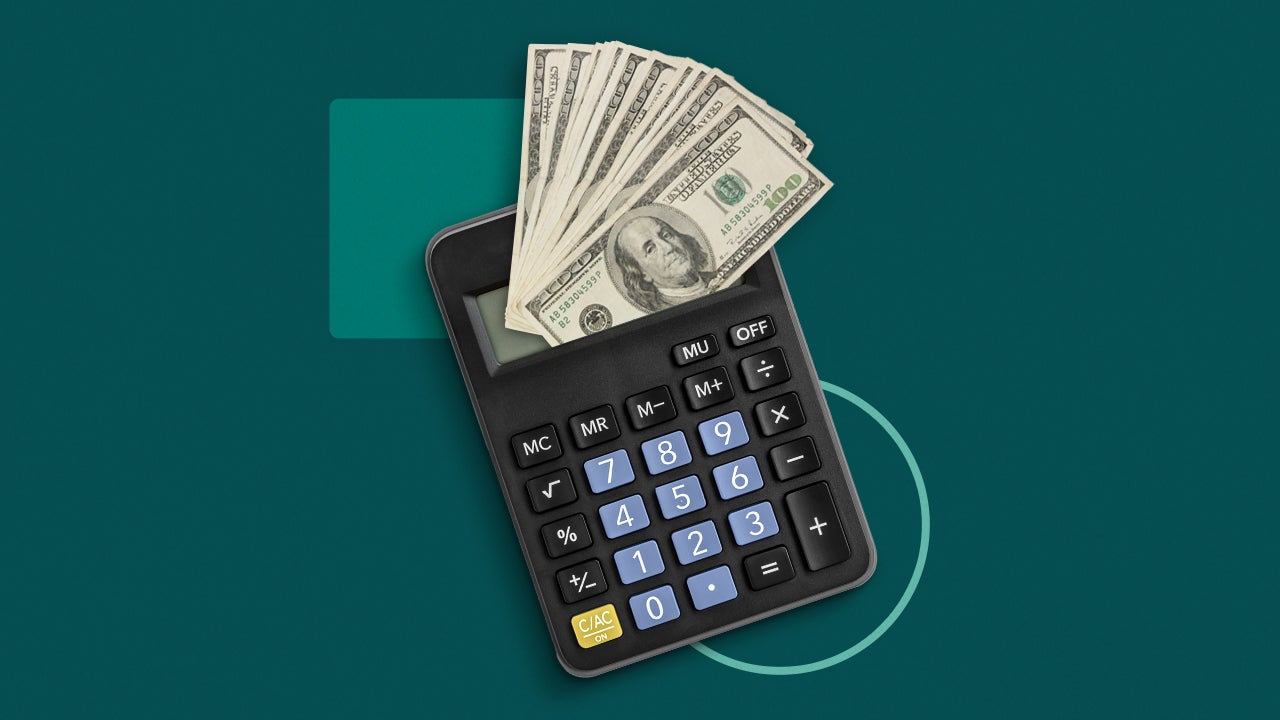How to calculate interest on a car loan

Key takeaways
- Before signing off on an auto loan, crunch the numbers to ensure you can afford your new set of wheels.
- To find how much you’ll spend on interest, use an auto loan calculator, work it out yourself or talk to a lender.
- Factors including car specifics, the economy, your credit history and overall financial health determine your car loan interest rate.
- To avoid paying too much in interest, shop around for the right loan and save up ahead of purchase.
With so many online auto calculators available, car buyers may not give that much thought to how to calculate interest on a car loan. You don’t need to be a math whiz: You just multiply the loan balance by your interest rate and divide it by the number of months you have left on your loan term.
Besides directly affecting your monthly payment, interest is a very important factor that impacts the total cost of car ownership. The higher your interest rate, the more you’ll pay monthly and over the loan term. Knowing how to calculate the interest on a car loan can help you choose a loan you can afford and understand how much your car will really cost, interest and all.
How does interest work on a car loan?
Auto loan interest is the cost of borrowing money to purchase a car. The amount of interest you pay reflects how likely — or unlikely — the lenders think you are to repay the loan. They’ll offer you a rate based on factors such as your credit score, debt-to-income ratio, loan amount and repayment term.
Most auto lenders offer simple interest loans. Interest is calculated based on the amount you owe — the principal — each month. With each monthly payment, you spend less on interest and more toward the principal until the loan is paid in full.
A warning about precomputed interest loans
If you have lower credit or don’t qualify for a simple interest loan, lenders may offer a precomputed interest option. Rather than evenly splitting up your interest and principal payments, lenders usually “frontload” the interest.
That means you pay much more interest initially than you would with a simple interest loan payment schedule and pay less toward your loan balance. If you pay the loan off early, you’ll owe more than a simple interest loan since less of your monthly precomputed loan payment is applied to the amount you owe.
How to calculate car loan interest payments
There are several ways to calculate your monthly auto loan interest payment. Online payment calculators have the formulas built in. If you work directly with a lender, they’ll plug the figures into their loan systems to calculate your interest and monthly payment. You can also run the numbers yourself as long as you know the principal, loan term and interest rate.
Use an auto loan calculator
Free, online auto loan calculators allow you to skip the pencil-and-paper math and calculate your interest in seconds. You can experiment with different amounts, loan terms and rates to see how they affect your monthly payment and total interest charges.
For example, the Bankrate auto loan calculator produces a full amortization schedule to clearly illustrate the amount of interest you’re paying each month and the total interest paid over the life of the loan.
Talk directly to your lender
You can also contact a lender directly to compare potential auto loan rates. A loan officer can give you a customized preview of your loan, including potential interest rates based on your down payment, loan term and how much you need to borrow.
Interest is not the same as APR
You’ll notice that lenders disclose both an interest rate and an annual percentage rate (APR) related to your loan. Interest is the cost you pay to borrow as a percentage and is the rate you’ll want to use when calculating interest on a car loan.
Auto loan APRs include interest plus lender fees, also expressed as a percentage. Because APR reflects the total costs over the life of your auto loan, it shouldn’t be used when making your interest calculations.
Work it out yourself
If you like calculating by hand, you can find your car loan interest payments with a simple formula.
However, this number is much higher than what you’d pay in interest because auto loans are amortized — your interest is recalculated each month based on your loan balance. As a result, we recommend using an auto loan calculator or working with your lender to understand your total interest costs rather than doing it by hand.
Factors that determine car loan interest rates
Lenders consider a variety of factors when determining what new car or auto refinance rate to offer you. The most common criteria include:
- Credit score: Your credit score matters most when it comes to how lenders set your rate. The higher your score, the lower your rate. According to Experian’s State of the Automotive Finance Market report, the current average rate for new car loans is 6.51% if you have excellent credit, but bad credit auto loan rates average 13.34%.
- Down payment: Making a large down payment helps to reduce the amount you borrow, which means you pay lower interest charges. It can also reduce the likelihood that you become upside-down on your loan.
- Debt-to-income ratio (DTI): Your debt-to-income ratio measures how much of your paycheck is currently spent on debts like mortgages, credit cards, or other installment loans. A lower DTI could get you a better rate because lenders will consider you less at risk of defaulting.
- Loan term: Generally, longer loan terms result in higher rates. You’ll also notice you pay more interest over the life of a longer-term loan, even though the monthly payments are lower.
- Loan amount: Some new car lenders offer lower rates for high loan amounts, especially if you have exceptional credit.
- Car age: Typically, the older the car, the higher the rate. If you want to buy a car over 10 years old, you may pay much more interest if you can find a lender that will finance your car.
- Work and education experience: Some lenders now look at your job history and education when determining your interest rate, which means you could qualify for a decent rate without the best credit score.
- Average market rates: The Federal Reserve impacts auto loan rates, but not significantly. When the Fed lowers rates, lenders may also lower their minimum advertised rates.
How to avoid paying too much interest
You should prequalify with at least three lenders before heading to a car dealership or applying online with any lender. Always ask any dealer’s finance department if they offer prequalification.
Otherwise, they may submit your application to multiple lenders, which could damage your credit score and land you a higher rate than you want. With the right strategy, you may pay far less interest than diving in headfirst to the auto lending world. Here are a few more tips to help you save money on auto loan interest:
See if you qualify for a 0% APR loan
If you have exceptional credit (800-850 on the FICO model) and plan to buy a new vehicle, you might qualify for a 0% APR auto loan. Just watch out for extra fees that dealers may tack on to the car’s price to make up for the fact that they won’t earn any interest on your loan.
Time your purchase
You’re more likely to find a deal during certain times of the year. The winter months after the holiday rush are often slower for car dealers. Salespeople may be more likely to strike a deal during this time.
The time immediately after or just before the new year model releases can also be a good time to buy. Dealers may be trying to get rid of the current year model before new models arrive. New models typically release in the fall.
Shop around for the best deal
Knowing what APR each lender will charge can help you find the car loan with the lowest overall cost. The interest rate listed on the main page is probably just the starting rate. You will likely need very good credit of 740 or higher and a stable income to get that low rate.
Dealerships make it easy to buy and finance in one place. But often, a dealership will not provide the best interest rate. Instead, get preapproved with a few direct lenders first and then negotiate like a cash buyer.
Save up before you buy
If you have some cash of your own, you can use that as a down payment on your vehicle. Experts tend to recommend at least 20% down. A larger down payment can lower your monthly payment and interest costs. It can also be more cost-effective than a long loan term because you will have a smaller principal and pay less interest over time.
Bottom line
Calculating the interest on a car loan can be done with the help of a calculator, by hand or through a lender. Take the time to do this math before choosing a car loan. This can help you make your dream car a reality responsibly. Knowing exactly how much you’ll spend each month means you can realistically plan a budget for your new vehicle.
Why we ask for feedback Your feedback helps us improve our content and services. It takes less than a minute to complete.
Your responses are anonymous and will only be used for improving our website.
You may also like

How to calculate loan payments and costs

How to calculate interest on a loan




